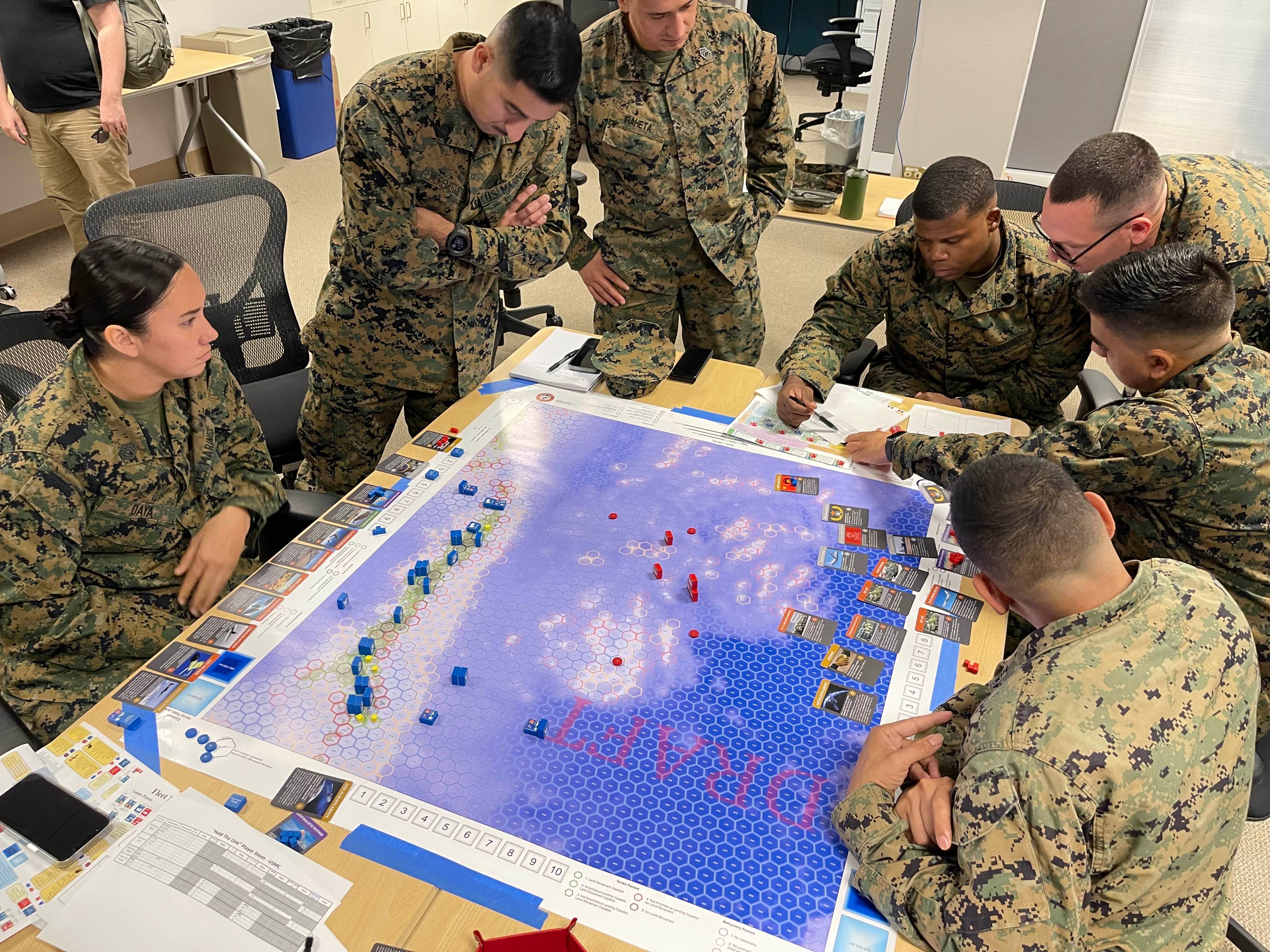Sebastian Bae spent a bit of downtime as a Marine in the barracks rolling dice and moving pieces around a board.
“Lots of Axis and Allies,” Bae told Marine Corps Times.
The Marine infantryman joined the Reserve in 2007 with thoughts of going officer once he finished school at the University of California, Berkeley.
The Corps activated his unit and he deployed to Iraq in 2009, serving mostly in forward operating bases outside of Ramadi, Iraq.

Instead of pinning on lieutenant’s bars, Bae opted for graduate school at Georgetown University and later landed a job in wargaming first with at the Marine Corps Warfighting Lab as a civilian, then with the RAND Corporation and now at the Center of Naval Analyses.
The former grunt took his love of hobby gaming and the deeper theory and practices of high-level wargaming and said to himself, “Why isn’t there something besides non-military role-playing games or Axis and Allies for the enlisted leader?”
The Corps has long prized wargaming and developing even junior noncommissioned officers as strategic thinkers. But wargaming for many means large-scale, theater-level campaigning or deep data dives and machine learning to decide what weapons system might provide the crucial advantage in a fight with China for Taiwan.
Bae thought for awhile he might have another option.
The Marines want even infantrymen to have outsized impact on the larger battle as they push their Expeditionary Advanced Base Operations, Force Design changes and other concepts to allow Marines to contribute in unique ways to the larger fight.
“I wanted Marines to understand Force Design 2030 and why these changes were happening and why the commandant was making the changes he was,” Bae said.
So, after years of wargaming in 2019 Bae started building his own game – Littoral Commander.
The game started as a weekend pet project, he said. The former infantryman couldn’t get many people interested in an educational game for enlisted.
The pandemic hitting in 2020 jumpstarted his wargame development, giving him more time than he’d had before to work on the design and concept, he said.
He finished the game in August 2020 and started testing it nearly nonstop through March 2021. He even ran it for leaders he knew at the Corps’ Expeditionary Warfare School.
Then, it kind of caught on but needed some smoothing of rough edges. Game design isn’t for the faint of heart.

After that, he ran the game for various units, including tactics professionals at the Marine Corps Air Ground Combat Center.
“Demand got so big that it outstripped my abilities to make them on my kitchen table,” he said.
Then Bae went pro.
He contracted with a game-building company, the nonprofit Dietz Foundation, to produce the sets and started shipping the finished product to units.
Ian Brown, who recently served as operations officer for the Marine Corps Brute Krulak Center for Innovation and Future Warfare was both an early player and feedback source for Bae.
“I’ve played wargames since I was a kid. I’m old enough that I had a copy of the Milton Bradley miniatures game “Battle Masters,” Brown told Marine Corps Times in an email response.
The CH-53E helicopter pilot said his work at the center allowed him to “rekindle” his interest in war and strategy games.
“I’d say the central thing that makes Littoral Commander unique is that it’s designed to capture a Marine Corps-centric problem: future multi-domain warfare using known or suspected capabilities of both ourselves and our prospective adversary,” Brown said.
A custom-made game for a particular military focus is difficult to get built, he said. Littoral Commander gives an “intellectual sandbox” for Marines to look at a future problem.
Neither infantryman Bae nor pilot Brown brush off real-world training. But field exercises and flight hours cost money. Exercising the mind is an investment of time. And a game such as this only takes the time required to set up and play.
“Live training is always great, but it’s not always available, and when available it’s not always focused on decision-making, or the individual vice the group,” Brown said.
Having junior Marines play the game spreads strategic thinking, he said.
“Rather than having a few thousand officer-type Marines trained and educated to make decisions, you have 170,000-plus Marines able to do that,” Brown said.
The game costs $70, with much of the profit supporting Dietz Foundation work to proliferate educational gaming in various areas.
Bae is now at work on an Army version that looks at a Multi-Domain Task Force and the Marine Corps Amphibious Readiness Group, Marine Expeditionary Unit and how those formations work in future war scenarios, he told Marine Corps Times.
*CORRECTION: A previous version of this article inaccurately stated the order in which Bae was employed at various organizations.
Todd South has written about crime, courts, government and the military for multiple publications since 2004 and was named a 2014 Pulitzer finalist for a co-written project on witness intimidation. Todd is a Marine veteran of the Iraq War.





